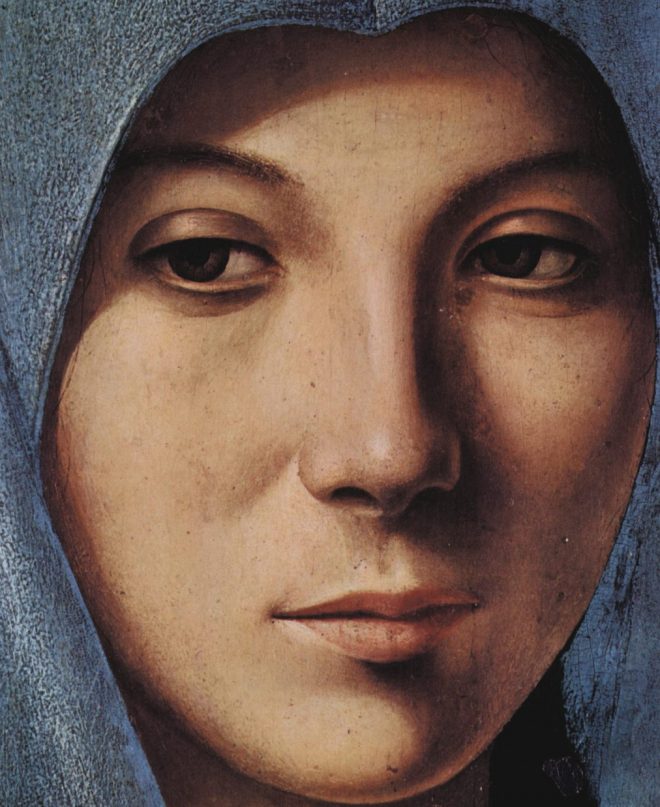“That’s why my name is Giovanni,” a book that shows the educational role of the fathers
We often talk about how to help young people to have public spirit. There are plans to enhance their education in schools, to develop projects that help young people to respect the others and the environment; to follow the rules of good behavior that life in society imposes for the common good.
We should certainly encourage these initiatives “outside the family”, which teach the children, for example, the value of legality. Nevertheless, a good starting point would be to receive this type of education at home.
Civic sense and the role of the father
On the occasion of Father’s Day, which is celebrated on March 19th, we would like to pay homage to the figure of the father, to his fundamental educational role for his children and propose a different gift from the usual, that perhaps can be enjoyed together: a novel. It is a classic, That’s why my name is Giovanni (by Luigi Garlando, published by Rizzoli in 2004), in which the formative role of the parent emerges in all its strength and beauty.
“That’s why I’m called Giovanni”: the story
The protagonists are a father and a son from Palermo. The story, set in the early 2000s, immediately shows us the problem of the code of silence. In fact, an arrogant boy repeatedly bullies Giovanni, who is a 9-year-old boy, and his classmates. A series of mysterious incidents happen: the snacks and the stickers disappear; there are inexplicable falls from the stairs… When the teacher asks for explanations, Giovanni tells his father (as his classmates do) that he “didn’t see anything”, for fear of retaliation.
It is at that moment that the father realizes he has to tell a story that has changed the life of their city: the story of Giovanni Falcone, a well-known magistrate from Palermo, who was murdered almost ten years before the book was published, on May 23rd, 1992, after having fought with determination and courage against Cosa Nostra and its extensive criminal operations in that territory.
The father and the son, in agreement with the teacher, take a day off: they go to the sea, eat together and they talk. The father begins to tell about a “famous John” who was able to say no to corruption, to the law of the strongest, instead of surrender for fear or convenience, restoring confidence in the law of the state in a city deeply marked by the mafia.
He explains to his son that legality must always win, at every level and that there is a just law – that of the teacher – and an unjust law – that of the overbearing peer – even at school: from childhood, certain behaviors must be refused, if one does not want “the artichoke” (as the mafia is called in slang) to grow and spread more and more, perhaps even under another name.
Why we recommend this novel?
The novel is very instructive first of all, because, although it is a made-up story, the facts about Falcone’s life are true: the book can be considered biographical, because it allows us to know what he really did in the name of justice, to admire the heroism with which he carried out his mission, even when, in order not to be killed by the mafia, he ended up in an armored prison, without being able to go out to eat a pizza or go swimming in the sea, which he loved so much. It tells us about the strength of a man who accepted to be persecuted in the name of justice, who never surrendered, even willing to sacrifice his life (in fact he died because of an attack in Capaci, Sicily).
But the pearl of the book is, in our opinion, that this story is conveyed
from father to son, as if it were a precious legacy, to be kept and shared,
as if there were a responsibility to “hand down”.
A book that gives hope for the future
The book shows the desire for honesty of a parent who, after discovering what the heroic Sicilian magistrate Giovanni Falcone has done for his city, starts to rebel against injustice, refusing to pay the “pizzo” (the “tax” that commercial activities “owe” to the mafia if they don’t want to be blown up). Grateful to Falcone, he says “no” too and sees his shop go up in smoke. But he is happy, because he no longer finances with his money the explosives used by the mafia in its attacks or the acid with which it kills the children of troublesome people. He’s happy because he no longer feeds the “monster”.
And he decides to name his son Giovanni, like Falcone, so that his “no” to evil will be chosen also by future generations.
Persecuted, but free
The child, after listening carefully to the story, decides to reverse the trend.
From that moment on, sometimes he comes home with a black eye, but he feels better, because he is no longer a slave to injustice: living in the truth makes him feel free.
The book, also recommended from the age of 10-11, is often used at school to talk about the mafia and social justice. Why not use it also at home to reflect on the importance of the presence of a just father in the life of his son?















